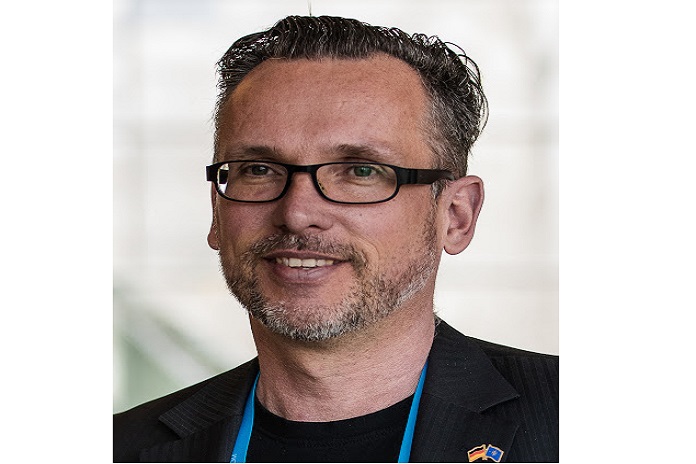
Pharmaceutical supply chains are about to face their biggest security challenge for a generation as the world prepares for life-changing deliveries of Covid vaccines, says the Transported Asset Protection Association (TAPA).
An estimated 7-19 billion doses of the vaccine will be required to eradicate Covid-19 globally, enabling 60-70% of the global population to gain immunity and to stop the virus from spreading.
With over 50 million confirmed cases of the virus still being treated and the tragic loss of more than 1.2m lives, the world is waiting for a vaccine to deliver long-awaited health and wellbeing assurances.
This expectation is placing unprecedented demands on pharma supply chains but the industry will be ready to ensure doses of the vaccine reach patients across the globe safely and securely, and with their integrity intact, says Thorsten Neumann, President & CEO of TAPA’s Europe, Middle East & Africa (EMEA) region.
TAPA, the world’s leading supply chain security and resilience association, includes over half of the world’s top 25 pharmaceutical companies in its membership, and Neumann says this reflects the industry’s total commitment to supply chain risk management and loss prevention.
“Ensuring the secure storage, transportation and delivery of every pharmaceutical shipment is of paramount importance to the healthcare industry to ensure patient safety. This explains why pharmaceutical supply chains are among the most resilient of any sector.
In terms of cargo security, the true cost of loss of a pharma cargo has been estimated to be between 5-7x the value of the product because of the domino-effect it creates, including wide-scale product recalls, to say nothing of the reputational damage to companies.
Product losses are clearly the biggest threat but contamination of pharma cargoes during a cargo crime – even if they are not actually stolen – can be just as damaging.
“In terms of world health, the Covid vaccine represents the biggest supply chain security challenge of our generation because so much is expected from both a public health and economic perspective. It is no coincidence that on the day we saw an announcement about successful vaccine trials, European stock markets soared by 7%, so there’s so much at stake for both the pharma industry and its logistics service providers,” Neumann commented.
With vaccine deliveries expected to begin as early as next month, the focus of all supply chain security stakeholders will be to avoid any disruption to the delivery process and to protect the integrity of vaccines on their way to patients. TAPA EMEA, however, says companies must leave no stone unturned in assessing the associated cargo security risks and requirements on a country-by-country basis because the threat of cargo theft is never far away.
“With a black market controlled by supply and demand, Organised Crime Groups (OCGs) will be very aware of the value of doses of the vaccine and are highly likely to be looking for ways to intercept supply chains to steal shipments, especially with such high volumes being distributed within a short timescale.
If such losses do arise, the impact on the global community will be much more far-reaching than the theft of a single shipment of vaccines. As we have already seen this year with the high number of thefts of Personal Protective Equipment (PPE) from supply chains, cargo thieves are very active in targeting Covid-related products so, as industry, we must be ready,” Neumann adds.
TAPA members involved in vaccine distribution can use the Association’s cargo crime intelligence tools and industry standards to effectively support their in-house supply chain security programmes.
TAPA’s Incident Information Service (IIS) allows members to see trends relating to recorded thefts of pharmaceutical cargoes by types of incident, location, product stolen and the modus operandi used by offenders. This helps companies avoid routing deliveries through cargo crime ‘hotspots.’
Companies using supply chains protected by TAPA Facility Security Requirements (FSR), Trucking Security Requirements (TSR) and Parking Security Requirements (PSR) certifications will also have robust measures in place for product storage and transportation, as well as for secure truck parking of loaded vehicles.
Thorsten Neumann stated: “Through our members, TAPA already plays an important role in helping to safeguard the security and integrity of pharmaceutical cargoes – and this is now more important than at any time in our 23-year history. Our cargo crime data already shows that even with the best efforts of industry, facilities storing and trucks delivering pharmaceuticals are targets for violent attacks, hijackings and robberies.
This is why we expect to see an unprecedented supply chain security programme in place to protect deliveries of Covid vaccines which may include the use of armed escorts, additional truck security and driving in secure convoys, depending on the level of risk in each geography. Some countries may even be considering military support to ensure vaccine deliveries are not delayed in any way. TAPA is also ready to offer any help we can.”










